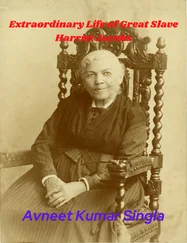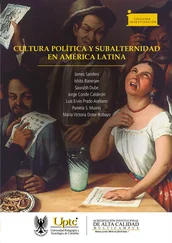When word of his musical prowess spread, as it was bound to do in such a setting, he was given the regular use of a too-small, half-sized violin, on which he was able to practice for the occasional private violin lesson. He also found himself relieved of his work duties and, to the ire of his jealous brother, assigned to the exclusive group of Notenschreiber who reproduced by hand the rare, precious scores that arrived at Terezín, or were composed there amidst the chaos and horror. Every so often, Lajos would change a note or two, such as those at the very center of the violin part of Gideon Klein’s Trio, and await with great joy his surreptitious contribution to the public performances. Many of those scores were lost, and little by little Harkályi had, in the intervening years, attempted to resurrect them in his own compositions.
12.
His mother sat alone, a porcelain cup of weak tea held on a saucer in her lap. The room was strangely bright, bleached by a sun that had drawn inexplicably closer. He approached her, as if dreaming, finally asleep, and as she stood, her smile grew bountiful enough to rid Lajos of all that plagued him. The porcelain made no sound as she returned it to the table.
“You made it,” she said.
“Yes. Yes — I have made it.”
“Let me look at you.”
She took his shoulders in her hands and could tell how thin he had grown, that the meat had atrophied and shriveled from his bones. But her arms around him — this was why he had come. The tears swelled in his eyes. “I am so happy. So happy to see you.” He held onto her so that she could absorb all of his suffering and sleeplessness, as if her youthfulness and beauty would make it dissipate like smoke.
“You are so thin,” Magda said, “but you look healthy.”
Neatly attired strangers murmured around her in countless languages about the current state of Europe, about these awful, dreadful times, about what new travesties today would bring. They stirred cubes of refined sugar into their teacups and stabbed tiny forks at their plates. A young girl, not yet a teenager, wound her way through the labyrinth of tables, collecting soiled dishes.
“It’s unbelievable. Have I told you that you look exactly like your grandmother?”
“Only every time I see you.” “She was—”
“—the most beautiful woman in Budapest.”
“Are you mocking me, Magda?”
“Only a little, bácsi.” She was his same height, if not slightly taller, and she kissed him on both cheeks. “How is your room?”
“Fine, fine. Very comfortable.”
“Két cappuccino,” she told a passing and disinterested waitress, and they sat. “The coffee here’s great, ten times better than what we get down at the base. Are you hungry?”
“No, I had room service deliver some things. You should eat, however. Oh, and I’m terribly sorry. I bought you some hóvirág but, foolishly, I left them on the metro.”
The resemblance was impossible to fathom. She was the same age, or very close to the same age, that his mother was when he and Tibor saw her for the last time. Even her voice carried a distinct and soothing similarity.
The cukrászda doubled in the morning as a dining room for guests of the hotel, and the characteristic odors of baking sugar and of stale coffee lingered in the atmosphere. The pastry chefs arrived with regularity behind the counter to load the glass display cases with decorative cakes and tortes and every manner of creamy, rich dessert. The array of treats fascinated and repelled him; that people would consume such junk was an outrage, but that such an ocean of options existed, and in Budapest, was cause for celebration.
The difference between communism and democracy, he came to believe in the course of his travels, could be witnessed in that very display case full of cakes. On his last visit, he had spent an afternoon at Café Gerbeaud, the famous coffee house on Vörösmarty Square. At that time, they had one variety of cake available, which was extremely dry and not very delicious, but which cost him only ten forints. That was communism. Now, he could choose from a hundred varieties of cake, but each cost one thousand forints. That was democracy. Europe had chosen to choose, but Harkályi feared that they accepted only the illusion of choice. The display case was a mirage, a distraction. They were deciding from among different combinations of the very same ingredients used to make that flavorless cake in 1967.
“What would you say to a serving of Somlói galuska?” he asked.
“Bácsi, it’s not even noon yet.”
“What better time.” He, with some difficulty, got the attention of a waitress. “Somlói galuska.”
She appeared to be surprised. “Igen?”
“Igen. Két.”
“Kettő?”
“Igen, kettő.”
“Your Hungarian is returning.”
“Maybe one could say that I am returning to it. Perhaps that is why I am so nervous.”
“Nervous? You’ve been through this a million times.”
“Yes, and a million times I have been nervous. I cannot tolerate the pageantry involved with these events, yet I cannot avoid them because—”
“Because you are the ‘world’s greatest living composer.’”
“I have told you to stop that, Magdalene.”
“I’m only teasing. You’re not really the world’s greatest living composer.”
“Thank you.”
“This must be strange for you, being home. It’s been so long.”
“Since the death of Kodály, yes. It is strange. Do you know that last night I went to visit the synagogue and when I arrived it was on fire.”
“On fire? Was it destroyed?”
“No. No, and that’s the peculiar thing. With my own eyes I watched it burn and yet once the fire was extinguished, there was no damage at all. I know that I’m beginning to sound like a crazy old man, but I believe I witnessed a miracle, Magda.”
“A miracle, bácsi? There has to be some explanation.”
“Yes, of course you are right. Some explanation. I must admit that I have not thought of this city as ‘home,’ as you call it, but it is a joy to see you.” She leaned forward to kiss him on the side of his face. “I am afraid that I’m not very good company this morning.”
“Are you still having trouble sleeping?”
“Yes, sadly, but it’s always worst before a concert, much less before a premiere. But I am very deeply moved to see you. Before I get too sentimental, however, let’s try this galuska.”
She tapped at her eyes with a white napkin.
The cake — if that was the word for this bowl of unruly slop — looked awful; it was a mess of undercooked dough and runny chocolate sauce buried under whipped cream. The sight alone made his stomach turn.
“Perhaps this was not such a good idea after all.”
“You have to at least taste it, bácsi.”
“No — it’s getting late. But tell me. You are working now for the American Army?”
“Our company is consulting for them. We’re private contractors.”
“War profiteers, you mean,” he said, of course joking.
“Yes, in a way. We’re integrating a suite of technical and logistical support systems into the military’s preexisting network of security solutions.”
“Network of security solutions?”
“Now who’s teasing whom? I’m a translator. I assist the Hungarian security firms that the United States government hired to train the Iraqi police force.”
“You’re not serious. The Iraqi police?”
“We’re teaching them the skills they’ll need to relieve our soldiers of peacekeeping work in Iraq. My work will help them get home to their families faster.”
“Why is this occurring in Hungary?”
“Cheap labor, basically. Our company works in six different security centers throughout the former Soviet Union. All these countries have mandatory military service, right? So these Hungarians are basically trained and disciplined already, not to mention eager for jobs.”
Читать дальше












